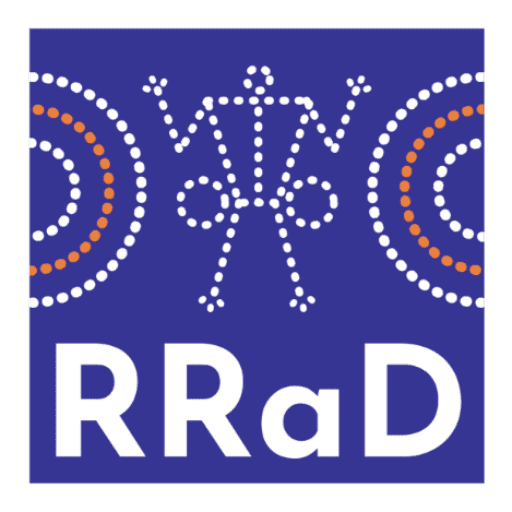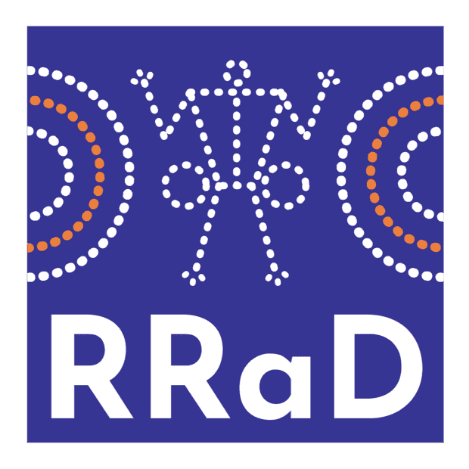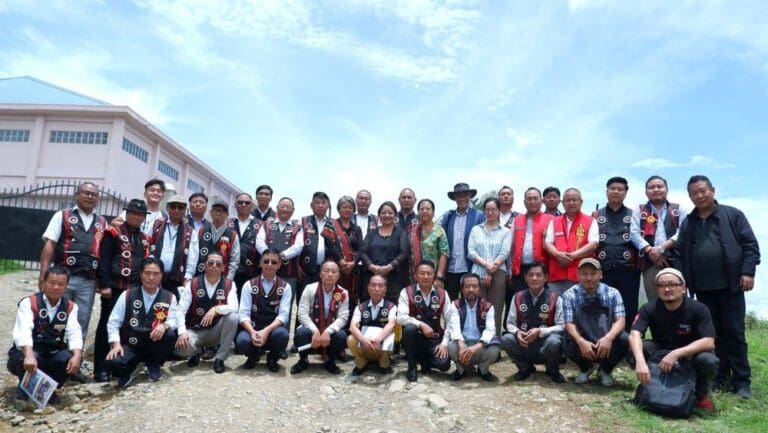The Recover, Restore and Decolonise (RRaD) team of the Forum for Naga Reconciliation (FNR) and participated in a weeklong study tour organised by the University of Melbourne. On 1st September 2023, a 14-member delegation travelled to Melbourne, Australia, for a learning exchange and dialogue series with Indigenous researchers and leaders at the University of Melbourne. The FNR and RRaD members focused on themes of healing, peace, justice, and reconciliation. These conversations also focused on repatriation of ancestral human remains. Since 2021, the FNR has been facilitating dialogues and raising awareness among various Naga communities and cultural groups about the possibility of repatriating Naga ancestral remains from the Pitt Rivers Museum (PRM) at Oxford University to the Naga homeland. As guests of the Vice Chancellor of the University of Melbourne, FNR and RRaD members interacted with their Australian counterparts – First Nations scholars who are involved in processes of repatriation, reconciliation, and healing. The weeklong meetings intersected with the areas of decolonization and the co-creation of Indigenous knowledge on heritage, justice, and repatriation.
Dialogue with First Nations scholars and practitioners in Melbourne
The delegation heard from leading First Nations academics and community-based practitioners, of note Prof Marcia Langton, Associate Provost and Prof Catherine Chamberlain, Professor of Indigenous Health. They were joined by FNR members Dr P Ngully and Dr Rev Ellen Jamir for a panel discussion entitled ‘Repatriation as a Path to Healing: An Indigenous Dialogue’, chaired by RRaD member and Associate Professor Dr Dolly Kikon.
Focusing on themes of Indigenous sovereignty, inter-generational trauma, and the impact of colonisation, the panellists deliberated on physical, mental health and psychosocial approaches to healing and well-being. Prof Catherine Chamberlain shared that ‘Just as in birth, connecting remains to their homelands is essential, and allows Indigenous communities to fulfill what they see as religious and customary law obligations to return their dead to the care of country. It is a critical part of the life course approach to healing – with birth and death the most sacred of times to ensure we pay respect and honor. It is so very important for our healing as a nation that sacred remains are returned to their resting place’.
The FNR and RRaD team also met with Professor Aaron Coen, director of the Indigenous Knowledge Institute and his team, for a dialogue on Indigenous cultural values and the importance of adopting Indigenous pedagogy in education and research initiatives.
Weeklong Engagement
Welcomed by Director of the Initiative for Peacebuilding, Dr Tania Miletic, FNR member Dr Aküm Longchari delivered a lecture on peace and healing. He reflected on the ongoing dialogues and what this means for the Naga people. Dr Longchari went on to state that ‘Only by agreeing and believing in the values of a shared future can we begin to address the past’.
The meeting included academics and practitioners who work in conflict-resolution and peacebuilding was guided by a discussion of the shared experiences of Indigenous peoples and their aspirations for ‘a shared humanity’.
The Australia India Institute (AII) also invited the FNR and RRaD delegation for a dialogue.
Dr Arkotong Longkumer, member of RRaD and Senior Lecturer at Edinburgh University joined Hon. Lisa Singh, CEO of the Australia India Institute for a podcast on the Naga Repatriation Process. Dr Longkumer underlined parallel lessons for Australia and India on reconciliation, the Indigenous experiences and their experiences with colonialism. ‘It is not about finding all the records because there are different ways in which knowledge is translated. The landscape, the bodies of people and the memories all come into play… so how might we revisit these events or how might people remember them and pass them from one generation to the other?’
The weeklong event included a session at the Melbourne School of Planning and Design to learn about digital repatriation and Indigenous heritage among Indigenous communities; an engagement on Indigenous storytelling with colleagues at Murrup Barak; a master class on healing and reconciliation at the School of Social and Political Sciences (SSPS); an interactive session with colleagues from the Museum and Collections at the University of Melbourne focused on repatriation and the role of museums to decolonize in the 21st century. In all the sessions the delegation members performed Naga songs including a traditional Naga chant by Dr Visier Sanyü. The Naga community in Melbourne welcomed the FNR and RRaD team with a community feast and a reflective session on the ongoing processes around the repatriation of ancestral Naga human remains.
Issued by:
Forum for Naga Reconciliation (FNR)
Dated: Dimapur, November 6th, 2023
First published in The Morung Express on 6th November 2023
Link: http://morungexpress.com/caring-for-a-common-future-a-public-report




